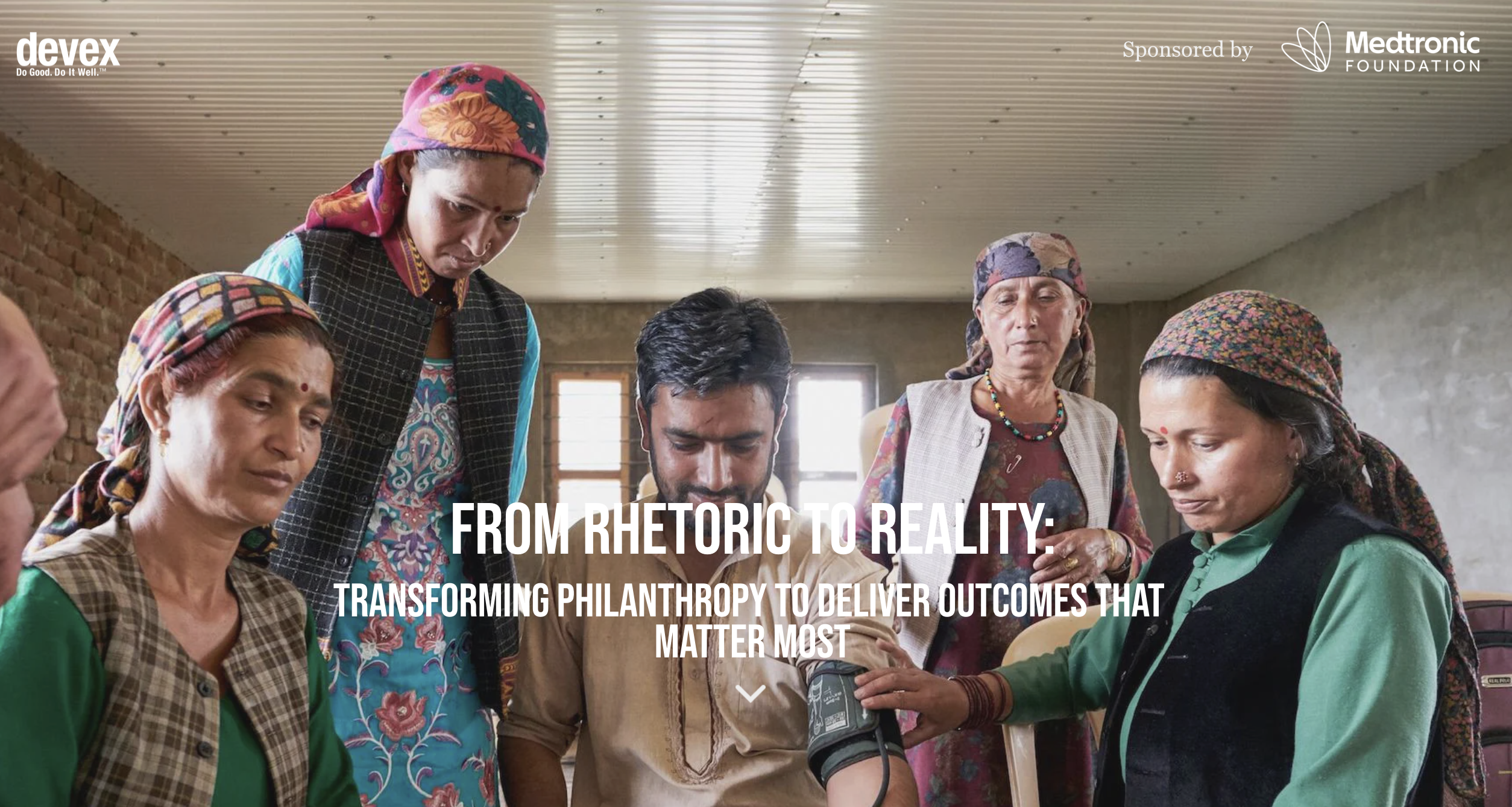By Devex Editor // 15 May 2020
Nonprofits, civil society, the private sector, and government all share a desire for sustainable impact for the people they aim to serve, said Paurvi Bhatt, president at the Medtronic Foundation — a charitable foundation funded solely by medical technology company Medtronic and dedicated to improving health among underserved populations and supporting communities worldwide.
This desire should be no different for corporate philanthropy, she said, adding that such entities should be more oriented toward achieving real outcomes. Only by focusing on outcomes can the philanthropic sector ensure investments are really working to improve the lives of those in need.
Yet achieving specific outcomes is not always the first port of call for organizations engaging in corporate philanthropy, Bhatt said.
Oftentimes, with corporate philanthropy in particular, people tend to think about the financial contribution as the impact itself. … But rather than basing our progress on how much money did we give, we should be asking, ‘How much impact are we generating?’
Aditi Mohapatra, managing director at global nonprofit organization Business for Social Responsibility, or BSR — which works on corporate sustainability with a network of more than 250 member companies — agreed that an outcomes-based approach is a good way to go but said it can be a challenge to secure funding that enables a focus on impact rather than tracking metrics such as numbers of people reached.
So how does an organization transition from one-off investments to a more strategic philanthropic approach? And how can mission-driven corporate philanthropies deliver scalable and sustainable solutions in health?
